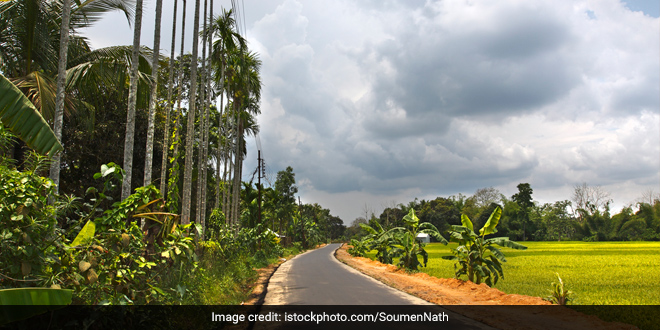Highlights
- Tripura CM Biplab Kumar Deb inaugurated state’s first road made of plastic
- Our main aim is to make Tripura plastic-free: CM Biplab Kumar Deb
- The road cost around Rs 70 lakh to build: West Tripura District Magistrate
New Delhi: With the aim to reduce plastic waste, for the first time, Tripura is using non-recyclable plastic waste in the construction of roads. Tripura Chief Minister Biplab Kumar Deb inaugurated the first road in the state made of plastic and said that the long term aim of the state government is to make the hill-state plastic-free.
“This is for the first time in Tripura that waste plastic was collected and used in the construction of 680 metre long road in front of the Women’s College near BK Road. Through this, I would like to set an example of how plastic waste is reduced by putting it to judicious use. This initiative is a beautiful example of how we can make our environment plastic-free and use plastic waste in public welfare projects,” CM Deb said at the inauguration.
Shailesh Kumar Yadav, District Magistrate of West Tripura district told NDTV that the plastic waste was used along with bitumen to construct the road. Bitumen is a black viscous mixture of hydrocarbons obtained from petroleum distillation, it is commonly used for road surfacing. He said,
The 680-meter road near B K road has been constructed by mixing waste plastic along with bitumen. It was a pilot project which we began to observe if a similar model could be adapted across the state. The road cost around Rs 70 lakh to build.
Mr Yadav further said that while this is just a trial but in the coming days, more such plastic roads will be constructed to reuse the plastic waste generated.
Also Read: A Study Conducted In Goa Flags Alarming Levels Of Microplastics In Seafood
He also said that generally, plastic, which has high usage in our daily life, is a menace as waste, that affects environmental quality and ecosystem health.
We know that globally scientists and environmentalists are worried about unmanageable plastic pollution. I’m glad we could contribute in reducing the waste problem in a way that can be considered as productive.
He also said that various experiments are going on to find the impact of the use of plastic in road construction along with bitumen particularly in rainy areas and where water logging is a common issue.
A spokesperson from Agartala Municipal Corporation told NDTV that the city almost generates 19 tonnes of plastic waste daily and such initiatives are expected to help the authority in better managing the plastic waste.
NDTV – Dettol Banega Swasth India campaign is an extension of the five-year-old Banega Swachh India initiative helmed by Campaign Ambassador Amitabh Bachchan. It aims to spread awareness about critical health issues facing the country. In wake of the current COVID-19 pandemic, the need for WASH (Water, Sanitation and Hygiene) is reaffirmed as handwashing is one of the ways to prevent Coronavirus infection and other diseases. The campaign highlights the importance of nutrition and healthcare for women and children to prevent maternal and child mortality, fight malnutrition, stunting, wasting, anaemia and disease prevention through vaccines. Importance of programmes like Public Distribution System (PDS), Mid-day Meal Scheme, POSHAN Abhiyan and the role of Aganwadis and ASHA workers are also covered. Only a Swachh or clean India where toilets are used and open defecation free (ODF) status achieved as part of the Swachh Bharat Abhiyan launched by Prime Minister Narendra Modi in 2014, can eradicate diseases like diahorrea and become a Swasth or healthy India. The campaign will continue to cover issues like air pollution, waste management, plastic ban, manual scavenging and sanitation workers and menstrual hygiene.
[corona_data_new]



























